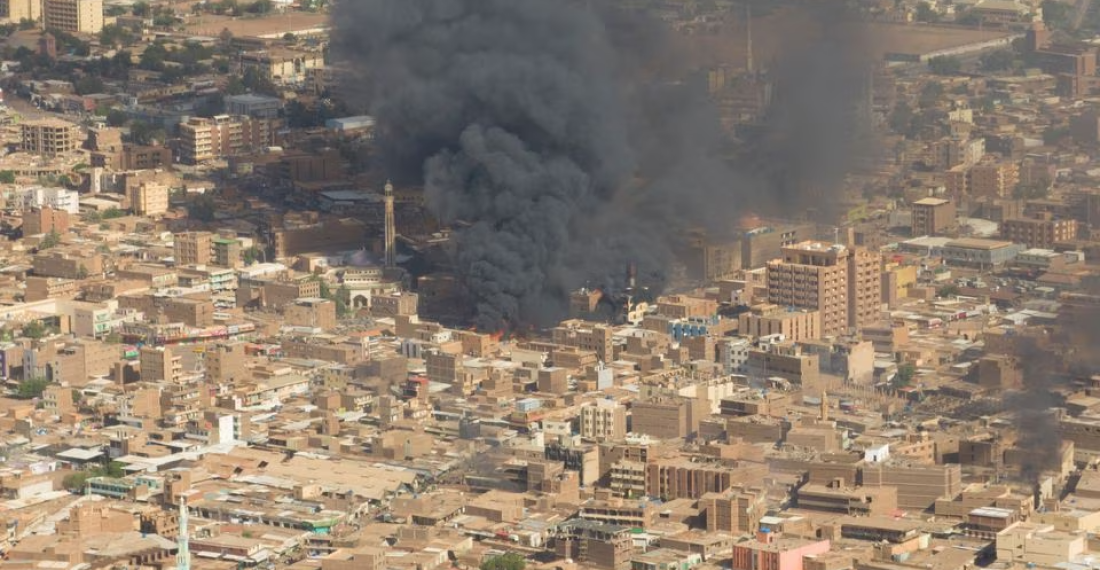Residents of Sudan's capital, Khartoum, reported a dramatic escalation in air strikes and artillery fire on Tuesday (16 May) as fighting between the army and the rival Rapid Support Forces (RSF) paramilitary group enters its second month.
The sounds of explosions and clashes reverberated in the southern parts of Khartoum, accompanied by heavy shelling in Bahri and Omdurman, neighbouring cities across the River Nile.
Although the conflict between the Sudanese army and the Rapid Support Forces (RSF) paramilitary group has triggered unrest throughout Sudan, particularly in the western province of Darfur, its epicentre remains in Khartoum. Fighting between the two groups broke out on 15 April as they failed to reach an agreement over a transition to civilian government.
Hundreds dead, hundreds of thousands displaced
This protracted violence has sparked a humanitarian crisis that threatens regional stability, forcing over 700,000 people to be internally displaced within Sudan and driving approximately 200,000 individuals to seek refuge in neighboring countries, such as Saudi Arabia.
Humanitarian conditions in the capital are increasingly dire, with dwindling food supplies, collapsing healthcare services, and rampant lawlessness. The International Federation of Red Cross and Red Crescent Societies (IFRC) reported that around 9 million people are living in close proximity to conflict zones. There are increased reports of sexual violence against displaced individuals, prompting the IFRC to launch a $33 million fundraising campaign.
Official records indicate 676 deaths and over 5,500 injuries, but the real death toll is expected to be much higher; there have been reports of bodies left unburied in the streets.
Fighting has intensified despite the warring factions entering into talks in Jeddah, Saudi Arabia, a week ago. Previous ceasefires between the Sudanese army and the RSF failed to halt the violence.







